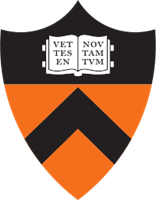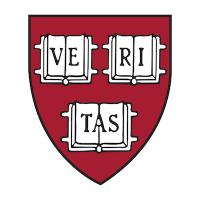What do they do?
Research, analyze, record, and interpret the past as recorded in sources, such as government and institutional records, newspapers and other periodicals, photographs, interviews, films, electronic media, and unpublished manuscripts, such as personal diaries and letters.
Also known as:
County Historian, County Records Management Officer (County RMO), Historian, Historic Interpreter, Historic Sites Registrar, Historical Interpreter, Research Associate, Research Historian, Researcher
-
2.9%
Change
Select a state to see its job growth rate ranking300Job Openings
Select a state to see its net job growth ranking
Looking for colleges that offer a specific major? Use the College Match Tool to find your best-matched schools and discover your estimated Net Price!
- Master's degree (42%)
- Bachelor's degree (34%)
- Doctorate or Professional Degree (16%)
- Associate's degree (4%)
- Some college, no degree (3%)
- High school diploma equivalent (1%)
- Less than high school diploma (1%)
Most Popular Majors that prepare Historians
-
#1
-
Degrees Granted
20,902
-
Female Students
8,615
-
Male Students
12,287
-
Median Starting Salary
$42,000
-
-
#2
-
Degrees Granted
343
-
Female Students
197
-
Male Students
146
-
Median Starting Salary
$42,000
-
-
#3
-
Degrees Granted
112
-
Female Students
73
-
Male Students
39
-
Median Starting Salary
$42,000
-
-
#4
-
Degrees Granted
70
-
Female Students
11
-
Male Students
59
-
Median Starting Salary
$42,000
-
-
#5
-
Degrees Granted
67
-
Female Students
46
-
Male Students
21
-
Median Starting Salary
$43,920
-
People in this career often have these skills:
- Reading Comprehension - Understanding written sentences and paragraphs in work-related documents.
- Critical Thinking - Using logic and reasoning to identify the strengths and weaknesses of alternative solutions, conclusions, or approaches to problems.
- Active Listening - Giving full attention to what other people are saying, taking time to understand the points being made, asking questions as appropriate, and not interrupting at inappropriate times.
- Writing - Communicating effectively in writing as appropriate for the needs of the audience.
- Speaking - Talking to others to convey information effectively.
- Active Learning - Understanding the implications of new information for both current and future problem-solving and decision-making.
- Social Perceptiveness - Being aware of others' reactions and understanding why they react as they do.
People in this career often know a lot about:
- History and Archeology - Knowledge of historical events and their causes, indicators, and effects on civilizations and cultures.
- English Language - Knowledge of the structure and content of the English language including the meaning and spelling of words, rules of composition, and grammar.
- Customer and Personal Service - Knowledge of principles and processes for providing customer and personal services. This includes customer needs assessment, meeting quality standards for services, and evaluation of customer satisfaction.
People in this career often have talent in:
- Written Comprehension - The ability to read and understand information and ideas presented in writing.
- Written Expression - The ability to communicate information and ideas in writing so others will understand.
- Oral Comprehension - The ability to listen to and understand information and ideas presented through spoken words and sentences.
- Oral Expression - The ability to communicate information and ideas in speaking so others will understand.
- Inductive Reasoning - The ability to combine pieces of information to form general rules or conclusions (includes finding a relationship among seemingly unrelated events).
- Near Vision - The ability to see details at close range (within a few feet of the observer).
- Speech Clarity - The ability to speak clearly so others can understand you.
- Speech Recognition - The ability to identify and understand the speech of another person.
- Deductive Reasoning - The ability to apply general rules to specific problems to produce answers that make sense.
- Problem Sensitivity - The ability to tell when something is wrong or is likely to go wrong. It does not involve solving the problem, only recognizing that there is a problem.
- Information Ordering - The ability to arrange things or actions in a certain order or pattern according to a specific rule or set of rules (e.g., patterns of numbers, letters, words, pictures, mathematical operations).
People in this career often do these activities:
- Prepare materials for preservation, storage, or display.
- Collect archival data.
- Conduct historical research.
- Prepare scientific or technical reports or presentations.
- Collect information from people through observation, interviews, or surveys.
- Instruct college students in social sciences or humanities disciplines.
This page includes data from:

 Occupation statistics: USDOL U.S. Bureau of Labor Statistics Occupational Employment Statistics
Occupation statistics: USDOL U.S. Bureau of Labor Statistics Occupational Employment Statistics









